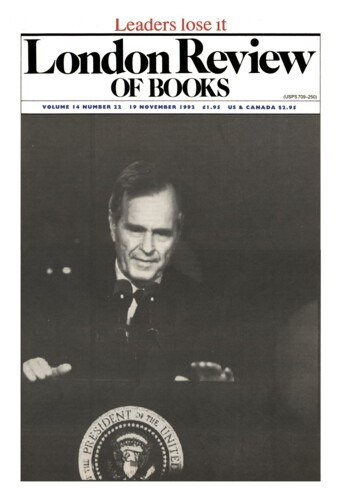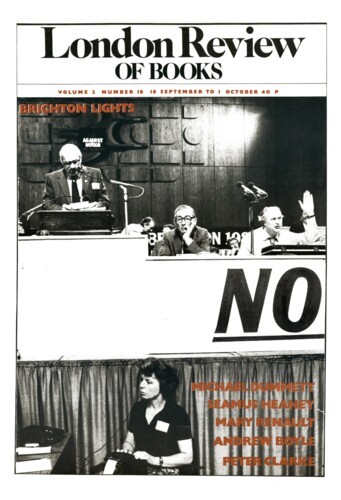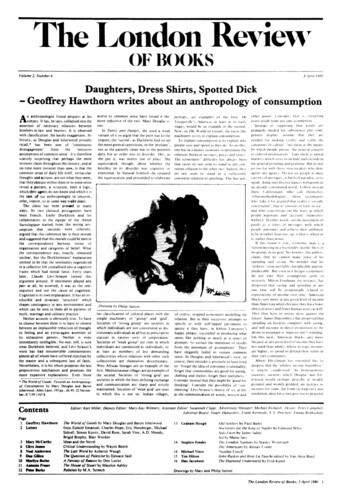Diary: Art Talk
Tim Hilton, 19 November 1992
Have you read Glen Matlock’s I was a teenage Sex Pistol? In its own way this is an enlightening book and I like the manner in which the words appear, splattered in a typeface that’s like a modern memorandum or a press release. Young Glen, though he can’t be so young today, had a good ghost writer in Pete Silverton. I guess that Pete pretty accurately represents Glen’s voice, as well as his ambitions. In the words of the blurb, ‘Matlock describes how chief Pistol Johnny Rotten and svengali manager Malcolm McLaren plotted the downfall of the rock establishment and how by hard work, good timing and brilliant PR, the Pistols shocked the nation.’ Pete got some other things from Glen’s mouth, including a fierce description of working-class community, which he believes to be now destroyed, in his native Acton. Glen thinks that this social change had an effect on his music. He’s the Hoggart of Punk. I didn’t realise that people said such things any longer. Intrigued, I went off to Acton to have a look. A chap in my position (between jobs) has to occupy his days in some way or another. I didn’t find much, apart from a mouse pie and a couple of pints. Nobody I met had much to say so I didn’t learn anything.



